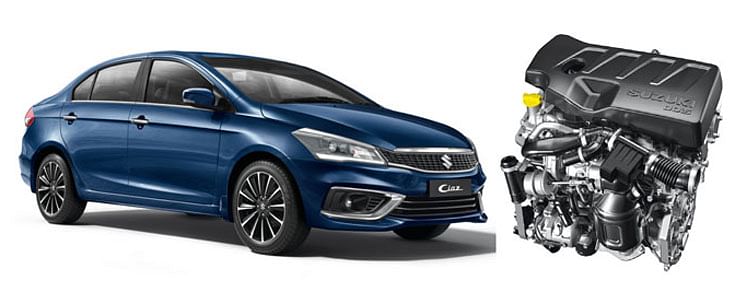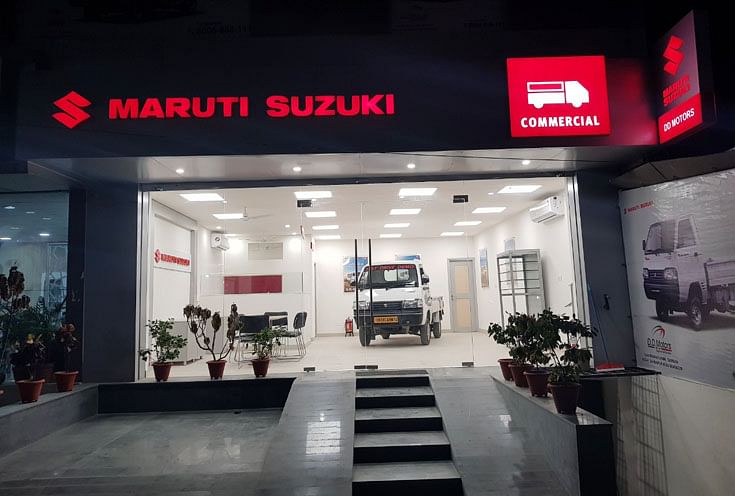Customer acceptability will decide Maruti Suzuki's BSVI diesel strategy: R C Bhargava
The journey for Maruti Suzuki in the diesel segment may restart, provided a fair number of customers prefer diesel and at a price which will include the BS VI technology cost impact.
Maruti Suzuki, India’s largest carmaker, will stop selling diesel vehicles in the domestic market on 31st March 2020, a day before the Bharat Stage VI (BSVI) emission norm comes into force. This was stated by the company's chairman R C Bhargava today. But the journey for Maruti Suzuki in the diesel segment may restart, provided a fair number of customers prefer diesel and at a price which will include the BS VI technology cost impact.
"It (presence in diesel segment) will depend on customer acceptability. It will be the customer's choice, not the OEM's choice," Bhargava tells Autocar Professional. Currently all but one of Maruti Suzuki's diesel variants are powered by a 1.3-litre diesel engine manufactured under licence from Fiat Chrysler. It had launched an in-house-developed 1.5-litre diesel engine in the premium Ciaz sedan on March 28. This engine will make a comeback in the BS VI era if customers give a thumbs up to its cleaner but costlier BS VI version.

In FY2018-19, all diesel variants of Maruti Suzuki models together contributed close to a fourth of the OEM's total sales. For the industry, it would be a little more. Wouldn't it be a risk to fully exit the diesel segment? Bhargava doesn't think so. He says, "Eight years ago, we (Maruti Suzuki) were a petrol-only carmaker. The market shift towards diesel forced us to enter the diesel segment."
Now the reverse global trend and the technology cost impact affecting affordability in the mainstream market don't make a compelling reason to play in the diesel segment. However, Maruti Suzuki will export diesel vehicles in markets which follow emission norms that are BS IV equivalent or below. "We will export to markets where there are no legal hurdles," says Bhargava.
Meanwhile, along with all these BS VI-related developments, Maruti Suzuki is also busy preparing its electric mobility strategy. Its first electric vehicle is slated to hit the roads next year.

Super Carry only in CNG and petrol from April 2020
In the commercial vehicle space, the story is similar for Maruti Suzuki. Bhargava confirmed that his company's sole commercial vehicle – the Super Carry – will cease to be run by diesel. From April 1, 2020, the small truck will be available only in CNG and petrol versions.
The Super Carry mini-truck is slowly gaining acceptance across the country. In FY2018, the vehicle sold 10,033 units to get a market share of 6 percent. In FY2019, it grew market share by 4 percentage points to 10 percent, with sales of 23,874 units, up 137 percent year on year, albeit on a low year-ago base. Maruti Suzuki India also exported 2,251 units of the Super Carry to some African countries.
Also read: Maruti Super Carry grabs 10% market share in India’s mini-truck market
RELATED ARTICLES
Cosmo First diversifies into paint protection film and ceramic coatings
The Aurangabad, Maharashtra-based packaging materials supplier is leveraging its competencies in plastic films and speci...
JSW MG Motor India confident of selling 1,000 M9 electric MPVs in first year
The 5.2-metre-long, seven-seater luxury electric MPV, which will be locally assembled at the Halol plant in Gujarat, wil...
Modern Automotives targets 25% CAGR in forged components by FY2031, diversifies into e-3Ws
The Tier-1 component supplier of forged components such as connecting rods, crankshafts, tie-rods, and fork bridges to l...






 25 Apr 2019
25 Apr 2019
 19942 Views
19942 Views





 Autocar Professional Bureau
Autocar Professional Bureau




